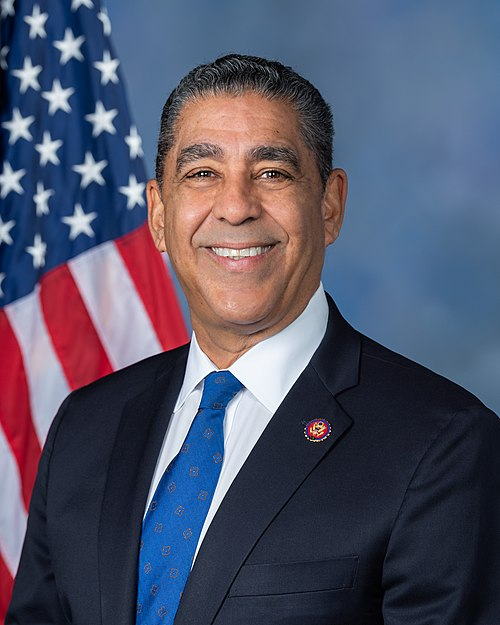H.R. 4325: Clean Shipping Act of 2025
The Clean Shipping Act of 2025
aims to amend the Clean Air Act by establishing new standards for reducing greenhouse gas emissions from vessels used for commercial shipping. Here's a breakdown of its main components:
Marine Greenhouse Gas Fuel Standard
The bill introduces a marine greenhouse gas fuel standard that requires vessels on certain voyages to meet specific carbon intensity standards for their fuel. This is defined as the lifecycle greenhouse gas emissions per unit of fuel energy, measured in grams of carbon dioxide-equivalent per megajoule. The standards are set to progressively decrease the carbon intensity of fuels used by commercial vessels starting in the year 2030.
- From 2030 to 2034: At least 30% reduction from a baseline established in 2027.
- From 2034 to 2039: At least 58% reduction.
- From 2040 to 2044: At least 83% reduction.
- From 2045 to 2049: At least 92% reduction.
- From 2050 onward: 100% reduction.
Implementation Timeline
The bill mandates the Environmental Protection Agency (EPA) Administrator to finalize the standards for the fuel carbon intensity by the following deadlines:
- Standard for 2030 by January 1, 2029.
- Standards for subsequent years two years before they take effect.
Feasibility Considerations
If the Administrator determines that achieving the required reductions is not feasible due to technological or economic constraints, a less stringent standard may be proposed that achieves the maximum feasible reduction. The considerations for feasibility will include the benefits to public health, safety, and environmental impacts.
Monitoring and Reporting
Vessel owners will be required to monitor and report:
- The carbon intensity of the fuel used.
- The amount of fuel consumed.
- Total greenhouse gas emissions measured in carbon dioxide-equivalent.
The EPA will compile these data into an annual report accessible to the public, intended to improve understanding of emissions from commercial vessels.
In-Port Marine Vessel Standards
The bill also establishes in-port standards aimed at eliminating greenhouse gas emissions from vessels at anchor or at berth by January 1, 2035, except when such standards are found to be technologically or economically unfeasible. In such cases, achievable reductions will be implemented instead.
Enforcement
The standards and reporting requirements will also be enforceable under existing emission laws, providing a framework to ensure compliance from the vessels affected by these regulations.
Relevant Companies
- CSX - As a major freight transportation company, CSX could be affected by increased operational costs related to compliance with new emissions standards for its shipping operations.
- UPS - As a leading logistics company, UPS may face challenges related to the reduction of carbon emissions from its shipping fleet, leading to potential operational adjustments.
- MSC - The Mediterranean Shipping Company is one of the world's largest container shipping companies and would need to comply with the new carbon intensity standards, potentially impacting freight costs.
This is an AI-generated summary of the bill text. There may be mistakes.
Sponsors
17 bill sponsors
-
TrackRobert Garcia

Sponsor
-
TrackNanette Diaz Barragán

Co-Sponsor
-
TrackSuzanne Bonamici

Co-Sponsor
-
TrackSean Casten

Co-Sponsor
-
TrackKathy Castor

Co-Sponsor
-
TrackEmanuel Cleaver

Co-Sponsor
-
TrackMark DeSaulnier

Co-Sponsor
-
TrackAdriano Espaillat

Co-Sponsor
-
TrackJohn Garamendi

Co-Sponsor
-
TrackJared Huffman

Co-Sponsor
-
TrackMike Levin

Co-Sponsor
-
TrackTed Lieu

Co-Sponsor
-
TrackDoris O. Matsui

Co-Sponsor
-
TrackJerrold Nadler

Co-Sponsor
-
TrackEleanor Holmes Norton

Co-Sponsor
-
TrackBennie G. Thompson

Co-Sponsor
-
TrackRashida Tlaib

Co-Sponsor
Actions
2 actions
| Date | Action |
|---|---|
| Jul. 10, 2025 | Introduced in House |
| Jul. 10, 2025 | Referred to the House Committee on Energy and Commerce. |
Corporate Lobbying
0 companies lobbying
None found.
* Note that there can be significant delays in lobbying disclosures, and our data may be incomplete.









